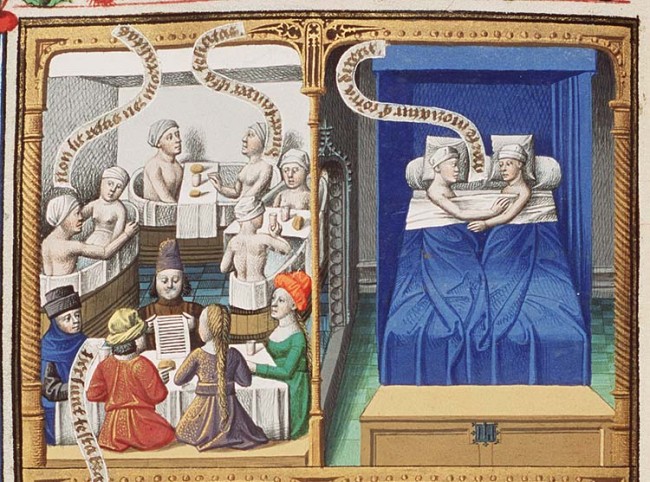That's the premise of this video:
I actually can't find anything to strongly criticize here. His arguments are rather solid, if a little vague, sweeping, and glossed over at most points. That has more to do with the constraints of explaining yourself within the timeframe of a 12-minute video, though. He makes a few minor mistakes about historical facts, but I think the bigger themes that he explores are very realistic and believable. Namely:
A) the stagnation of wages and no similarly dramatic population changes
B) the prolonging of both feudalism and unchallenged Catholic hegemony over Europe, plus the delay or total handicapping of the Reformation and the Enlightenment/Industrial Revolution/Capitalism
C) the sluggish development of agrarian technology, which would have inhibited greater population growth
D) the political setup of Europe doesn't change dramatically, happening much more gradually
I think the one thing he really failed to mention and really should have was colonization and the Age of Sail and exploration, which would have solved a lot of problems of overpopulation in Europe (that naturally led to poverty, famine, lack of resources, lack of social mobility, etc.). One could argue that, with its greater population and technology of the mid-14th century that was already suitable for ocrean-going travel, there could have been an equivalent figure to Christopher Columbus roughly a century before him who could have discovered the Americas or sailed around the Cape of Good Hope in South Africa to reach India like Vasco da Gama.
This is all focused on what would happen in the Western world, of course, so there is an equal amount of different results that could have happened in West Asia and North Africa, South Asia, and East Asia. It seems as if there are too many variables when considering these other regions of the world, but I generally think his idea of Mongol successor states lasting longer than they did to be believable enough. Perhaps they would have held on to Russia, Mesopotamia, Persia, Central Asia, China and Korea longer than they did historically (and pushed into northern India earlier like their Turko-Mongolic Islamic successors, the Timurids and Mughals).














 Reply With Quote
Reply With Quote













